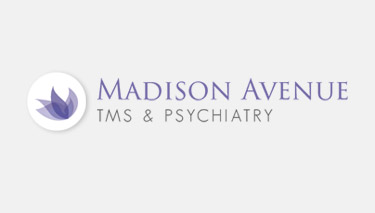What do you think of this article?
By Dr. David Woo - July 30, 2021

Psychiatrists and psychiatric nurse practitioners are mental health providers that evaluate, diagnose, and treat patients with mental and behavioral disorders. In many ways, their roles in patient care overlap. So, what’s the difference between the two?
Their Educational Background and Training
A psychiatrist is a medical doctor (MD) who completed medical school and a two- to four-year residency in psychiatry. Some psychiatrists complete additional training in a subspecialty, like military psychiatry or geriatric psychiatry, through a fellowship. The time it takes for a psychiatrist to get their license is between 12 to 14 years, including a bachelor’s degree.
A psychiatric nurse practitioner is a registered nurse who has completed graduate-level or doctorate-level education. A psychiatric NP has an advanced degree, such as a Master’s of Science in Nursing (MSN) or a Doctor of Nursing Practice (DNP). The time it takes for a psychiatric NP to get their license is between six and eight years, including an associate (ADN) or bachelor’s (BSN) in nursing.
Where They Typically Work
While psychiatrists and psychiatric nurse practitioners can work in the same settings, psychiatrists tend to work mostly in private practice/clinics and psychiatric NPs tend to work in hospitals and in-patient settings, like residential treatment centers (live-in rehab clinics). However, more and more psychiatric NPs are providing care in private practices. At Madison Ave TMS & Psychiatry, we have two board-certified psychiatric nurse practitioners on staff.
Their Model of Care
Medical school and nursing school are each based on a foundational model of care. Both models include empathic care that seeks to treat the cause of a patient’s illness, but each one differs slightly. The medical model of care focuses heavily on the physical and biological details of the patient’s condition. Medical doctors rely heavily on diagnostic tests to create a treatment plan. The nursing model of care is a holistic approach that not only focuses on the patient’s medical problems, but also how their social, cultural, and economic needs may be affecting their health.
Why Might You Choose One Over the Other?
Psychiatric nurse practitioners can work autonomously in the state of New York and, since they can do the same things as psychiatrists in appointments (including prescribing medication), an appointment with a psychiatric NP will look identical to an appointment with a psychiatrist. So, how do you choose between making an appointment with a psychiatrist or a psychiatric NP?
Patients can receive the same therapeutic benefits from a psychiatric NP as they can from a psychiatrist, which means that patients don’t need to choose between seeing a psychiatrist or an NP.
At Madison Ave TMS & Psychiatry, our attending psychiatrist Dr. Woo is accompanied by two psychiatric nurse practitioners. Get to know Dr. Woo and each of our psychiatric nurse practitioners here. To make a telehealth or an in-person appointment with Dr. Woo or one of our psychiatric nurse practitioners, click here.
Dr. David Woo is the owner and head clinical psychiatrist at Madison Avenue TMS and Therapy in New York City. Dr. Woo has been seeing patients in private practice since 2002, always with the goals of combining evidence-based medicine with psychodynamic psychotherapy and collaborating with other mental health professionals to ensure the best possible outcomes for his patients. He has been certified to administer TMS at his practice since 2017. His greatest clinical interests include helping patients suffering from depression, anxiety, and obsessive compulsive disorder.
Follow Dr. Woo On









